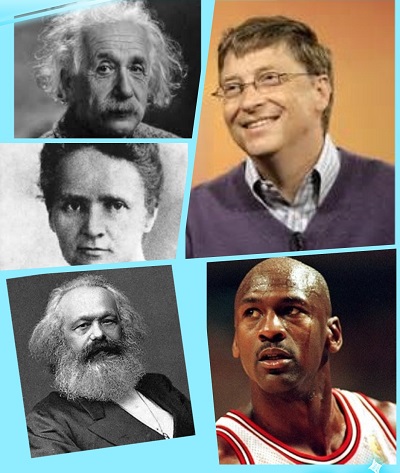The 50 Most Influential Foreigners to China
Throughout China’s time-honored history, before 1840 China was almost free of impact from the outer world. Only after the 1840 more foreigners or their thoughts began to have influence in the Middle Kingdom. Here is a list of the 50 most influential foreigners (most after 1840) to recent China. The list begins with George Macartney and ends with Samaranch. The list includes businessmen, academics, policy leaders, and notably no highly political figures. The list does, however, include several Japanese.
 1. George Macartney (1737 – 1806)
1. George Macartney (1737 – 1806)
George Macartney was a British statesman, colonial administrator and diplomat. He changed the West’s views on China.
2. Charles Elliot (1801 – 1875)
Charles Elliot was a British naval officer, diplomat, and colonial administrator. He was a key founder in the establishment of Hong Kong as a British colony.
3. Robert Hart (1835 –1911)
Robert Hart was a British consular official in China, who served as the second Inspector-General of China’s Imperial Maritime Custom Service from 1863 to 1911.
4. Ito Hirobumi (1841–1909)
Ito Hirobumi was four time Prime Minister of Japan. Ito as premier led his country into a war with China, which resulted in the acquisition of Taiwan and the Pescadores as Japanese colonies.
5. Timothy Richard (1845–1919)
Timothy Richard was a Welsh Baptist missionary to China, who influenced the modernization of China and the rise of the Chinese Republic.
6. William Alexander Parsons Martin (1827 –1916)
William Alexander Parsons Martin was an American Presbyterian missionary to China. From 1869 to 1895, he worked as president of the Tongwenguan in Beijing. He acted as a consultant of Chinese officials on international law when disputes arose with European powers.
7 . Alfred von Waldersee (1832 –1904)
Alfred von Waldersee was a German general who served as Eight-Power Allied Forces Commander in China in 1900-1901.
8. Arthur Henderson Smith (1845 – 1932)
Arthur Henderson Smith was an American who was famous for spending 54 years as a missionary in China and writing books which presented China to foreign readers. These books include Chinese Characteristics, Village Life in China and The Uplift of China.
9. Jean-Jacques Rousseau (1712—1778)
Jean-Jacques Rousseau was one of the most influential thinkers during the Enlightenment in eighteenth century Europe. His thought “Man is born free” had a great influence in China
10. Karl Marx (1818 –1883)
Karl Marx was a German philosopher and revolutionary socialist. His “Communism” was founded around the early 1800s and is still used in China Today. His book Communist Manifesto also had a great influence in Chinese Communist Party.
11. Friedrich Engels (1820 –1895)
Friedrich Engels was a German social scientist, philosopher, and father of Marxist theory. Karl Marx and his Marxist ideology helped Chinese Communist Party gain power and establish communist country.
12. Hirohito (1901 – 1989)
Hirohito was the Emperor of Japan reigning from 1926 until 1989. His era was characterized by the brutal military invasion of China.
13. Silas Aaron Hardoon (1851 – 1931)
Silas Aaron Hardoon was a wealthy businessman and well-known public figure in the city of Shanghai in the early 20th century.
14. John G. Kerr (1824 – 1901)
John Glasgow Kerr was a Presbyterian medical missionary to China. He worked there for 47 years and treated almost 1 million patients. His student Sun Yat-sen became the first president of the Republic of China.
15. Charles Darwin (1809 –1882)
Charles Robert Darwin was well known for his evolutionary theory. Although Charles Darwin never visited China, his ideas influenced Chinese reformers and revolutionaries and paved the way for Chinese Marxism and the thought of Mao Zedong.
16.Hans Christian Andersen (1805 –1875)
Hans Christian Andersen was a Danish author. His fairy tales are overwhelmingly well-known in China and had great influence on Chinese of all ages.
17.Sigmund Freud (1856-1939)
Sigmund Freud was an Austrian neurologist who was well known as the founding father of psychoanalysis. In China many Chinese psychoanalysts adopt Freudian techniques.
18. Henry McMahon (1808 – 1893)
Henry McMahon was a British colonist and Indian Army officer. He set the notorious illegal “McMahon Line” line between local Tibet government and India which was not admitted by the Chinese government.
19. Vladimir Lenin (1870-1924)
Vladimir Ilyich Lenin was a Russian communist revolutionary, politician and political theorist. He spread communism to Chinese politicians especially Chairman Mao.
20. Mikhail Borodin (1884 – 1951)
Mikhail Markovich Borodin was a prominent Comintern agent. He had great influence on both Chinese Nationalist Party and the Chinese Communist Party.
21. Rabindranath Tagore (1861-1941)
Rabindranath Tagore was one of India’s greatest poet, writer, artist as well as social activist. In the early decades of the People’s Republic of China, many Chinese scholars were deeply influenced by Tagore.
22. John D. Rockefeller (1839 – 1937)
John Davison Rockefeller was an American tycoon. He was the donator of Peking Union Medical College which later became a notable hospital in China.
23.Henrik Ibsen (1828 – 1906)
Henrik Johan Ibsen is one of the most influential foreign writers in 20th century China. No foreign writer contributed as much to the rise of modern Chinese drama as Ibsen did.
24. Leon Trotsky (1879 – 1940)
Leon Trotsky was a Russian Marxist revolutionary and theorist. He wrote lots of articles about China revolution from 1925 through 1940.
25. Otto Braun (1990 – 1974)
Otto Braun was a German Communist. His most significant role was as a Comintern agent sent to China in 1934, to advise the Communist Party of China on military strategy during the Chinese Civil War.
26. Albert Einstein (1879 – 1955)
Albert Einstein was a German theoretical physicist who developed the general theory of relativity. His relativity theory was assimilated by Chinese physicists who formed theories of their own.
27. Yasuji Okamura (1884 – 1966)
Yasuji Okamura was a general of the Imperial Japanese Army and war criminal, and commander-in-chief of the China Expeditionary Army from November 1944 to the end of World War II.
28. Franklin D. Roosevelt (1882 -1945)
Franklin Delano Roosevelt was the 32nd President of the United States. When the Sino-Japanese War began in 1937, Roosevelt found various ways to assist China.
29. Marie Curie (1867 – 1934)
Marie Curie was a Polish physicist and chemist. Her discoveries with radiation helped advance medical science. Also, her success story has encouraged many Chinese youths to be devoted to science.
30. Norman Bethune (1890 – 1939)
Norman Bethune was a Canadian physician. Bethune is best known for his service with the Communist Eighth Route Army during the Second Sino-Japanese War.
31. Joseph Stalin (1878-1953)
Joseph Stalin was the leader of the Soviet Union from the mid-1920s until his death in 1953. He sent his armies against Japanese forces in China during Japanese invasion to China.
32.Maxim Gorky (1868 –1936)
Maxim Gorky was a Russian and Soviet writer, a founder of the Socialist Realism literary method and a political activist. Many of his works have been translated to Chinese and influenced lots of modern Chinese writers.
33.Jawaharlal Nehru (1889 –1964)
Jawaharlal Nehru was the first Prime Minister of India. He shut the door to negotiations on the India-China boundary and finally caused the 1962 India-China war.
34. Nikita Khrushchev (1894 – 1971)
Nikita Khrushchev was the premier of the Soviet Union. Khrushchev delivered generous aid to China. However he also caused the Sino-Soviet split of 1960.
35. Thomas Robert Malthus (1766-1834)
Thomas Robert Malthus was a British scholar who became widely known for his theories about change in population. Based on his theory, China has implemented a policy of one child per family.
36. Kim Il-sung (1912-1994)
Kim Il-sung was the leader of the North Korea from 1948 until 1994. He developed a political thought known as chuch’e, a concept of self-reliance.
37. Ivan Vasilyevich Arkhipov (1907-1998)
Ivan Vasilyevich Arkhipov was a Soviet-Russian statesman who supervised programs in China in the 1950’s.
38. Kakuei Tanaka (1918 –1993)
Kakuei Tanaka was a Japanese politician and the 64th and 65th Prime Minister of Japan. His most notable achievement was the normalization of Japan’s relations with the People’s Republic of China.
39. Henry Kissinger (1923 -)
Henry Kissinger is an American statesman and political scientist. He orchestrated the opening of relations between America and the People’s Republic of China.
40. Richard M. Nixon (1913 –1994)
Richard Milhous Nixon was the 37th President of the United States. His visit to the People’s Republic of China in 1972 opened diplomatic relations between the two nations.
41. Armand Hammer (1898 –1990)
Armand Hammer was an American business owner. He invested in China’s largest coal mine and had good relationship of Chinese political leaders.
42. Konosuke Matsushita (1894-1989)
Konosuke Matsushita was a Japanese industrialist who founded Panasonic. He is well known as “the god of management”.
43. Ken Takakura (1931- )
Ken Takakura is a Japanese actor best known for his brooding style and the stoic presence he brings to his roles. His acting style had great influence on Chinese movie industry.
44. Mikhail Gorbachev (1931- )
Mikhail Gorbachev served as General Secretary of the Communist Party of the Soviet Union from 1985 until 1991. Gorbachev’s attempts at reform led to the dissolution of the Soviet Union.
45. Bill Gates (1955- )
Bill Gates is an American business magnate and the former chief executive of Microsoft. His success story has encouraged many Chinese youths to pursue their dream.
46. Harland David Sanders (1890-1980)
Harland David Sanders (1890 – 1980) was an American businessman, best known for founding KFC. In 1987 KFC became the first Western restaurant chain to open in China. And now China is the company’s most profitable market.
47. Steven Spielberg (1946- )
Steven Spielberg is an American film director. He is the most influential director to Chinese movie industry.
48. Michael Jordan (1963 – )
Michael Jordan is an American former professional basketball player. He is the greatest basketball player of all time. Michael Jordan’s career and achievements has a great effect on Chinese youths.
49. Alvin Toffler (1928- )
Alvin Toffler is an American futurist who is well known for his works discussing the digital revolution, communication revolution and technological singularity.
50. Juan Antonio Samaranch (1920 – 2010)
Juan Antonio Samaranch served as the seventh President of the International Olympic Committee (IOC) from 1980 to 2001. He helped China gain a newfound place in the Olympic movement.

